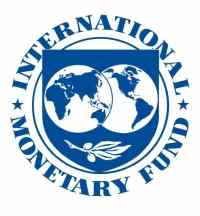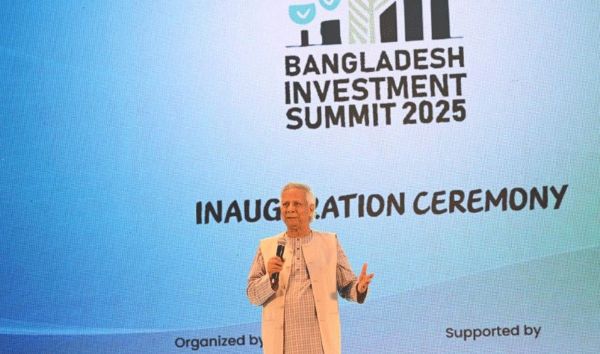
..
IMF expresses concern about Bangladesh’s economy
On December 18, 2024, the International Monetary Fund (IMF) issued a statement expressing serious concern about the economic situation in Bangladesh.
The IMF noted that economic activity has slowed significantly, and inflation remains elevated. Capital outflows, particularly from the banking sector, have pressured foreign exchange reserves.
Additionally, tax revenues have declined while spending pressures have increased, exacerbating stress in parts of the financial sector.
Amid significant macroeconomic challenges, Bangladesh's interim government requested an augmentation of approximately US$750 million in IMF financial support under the Extended Credit Facility (ECF) and Extended Fund Facility (EFF) arrangements.
During Prime Minister Sheikh Hasina’s government, the IMF Executive Board approved approximately US$3.3 billion under the Extended Credit Facility (ECF) and Extended Fund Facility (EFF) arrangements on January 30, 2023. This approval enabled the immediate disbursement of about US$476 million.
This 42-month arrangement until 2026 aims to preserve macroeconomic stability, protect the vulnerable, and foster inclusive and green growth. Reforms will focus on creating fiscal space to enable greater social and developmental spending; strengthening the financial sector; modernizing policy frameworks; and building climate resilience.
An IMF team led by Mr. Chris Papageorgiou visited Dhaka from December 3 to 18, 2024, to discuss economic and financial policies in the context of the third review of the IMF-supported programs. At the end of the visit, Mr. Papageorgiou stated that the Bangladeshi economy continues to grapple with persistent challenges and is facing emerging external financing needs.
The IMF projected that real GDP growth would slow to 3.8 percent in fiscal year (FY) 2025 due to output losses caused by public uprisings, floods, and tighter economic policies. However, growth is expected to rebound to 6.7 percent in FY2026 as policies relax. Inflation is anticipated to remain around 11 percent (annual average year-on-year) in FY2025 before declining to 5 percent in FY2026, supported by tighter policies and easing supply pressures. However, the outlook remains highly uncertain, with risks skewed to the downside.
IMF’s Recommendations to Address the Crisis
To address the emerging external financing gap and persistently high inflation, near-term policy tightening is crucial. Fiscal consolidation should prioritize the swift implementation of additional revenue measures, such as removing tax exemptions, while restraining non-essential spending. Coupled with monetary tightening, greater exchange rate flexibility and safeguarding foreign exchange reserve buffers will strengthen the economy's resilience to external shocks.
Bangladesh's low tax-to-GDP ratio calls for urgent tax reforms to establish a fairer, more transparent system and sustainably increase revenue. This should focus on rationalizing exemptions, improving compliance, and separating tax policy from administration. A comprehensive strategy is also needed to curb subsidy spending and address arrears in the electricity and fertilizer sectors.
Addressing vulnerabilities in the banking sector is essential. Immediate priorities include accurately assessing non-performing loans, effectively implementing existing regulations, and formulating a roadmap for financial sector restructuring. Key actions involve conducting an asset quality review and adopting a recovery and resolution framework aligned with global standards. At the same time, authorities should advance risk-based supervision, while legal reforms are needed to strengthen corporate governance and regulatory frameworks. Institutional reforms to enhance Bangladesh Bank’s independence and governance will be critical for the successful implementation of financial sector reforms.
Enhancing governance, along with greater transparency, is vital to improving the investment climate, attracting foreign direct investment, and diversifying exports beyond the ready-made garment sector.
Building resilience to climate change is essential for reducing macroeconomic and fiscal vulnerabilities. Strengthening institutional capacity and optimizing spending efficiency will aid in achieving climate goals. The government should focus on implementing climate-sensitive fiscal reforms and investing in sustainable, resilient infrastructure. Furthermore, robust management of climate-related risks will reinforce the stability of the financial sector.
Amid significant macroeconomic challenges, Bangladesh's interim government has requested an augmentation of approximately US$750 million in IMF financial support under the ECF and EFF arrangements. This increase would bring the total financial assistance under the ECF and EFF arrangements to about US$4 billion, alongside concurrent RSF arrangements of approximately US$1.3 billion. Upon completion of the third review, about US$645 million will be made available, comprising about US$426 million under the ECF and EFF and about US$219 million under the Resilience and Sustainability Facility (RSF).



